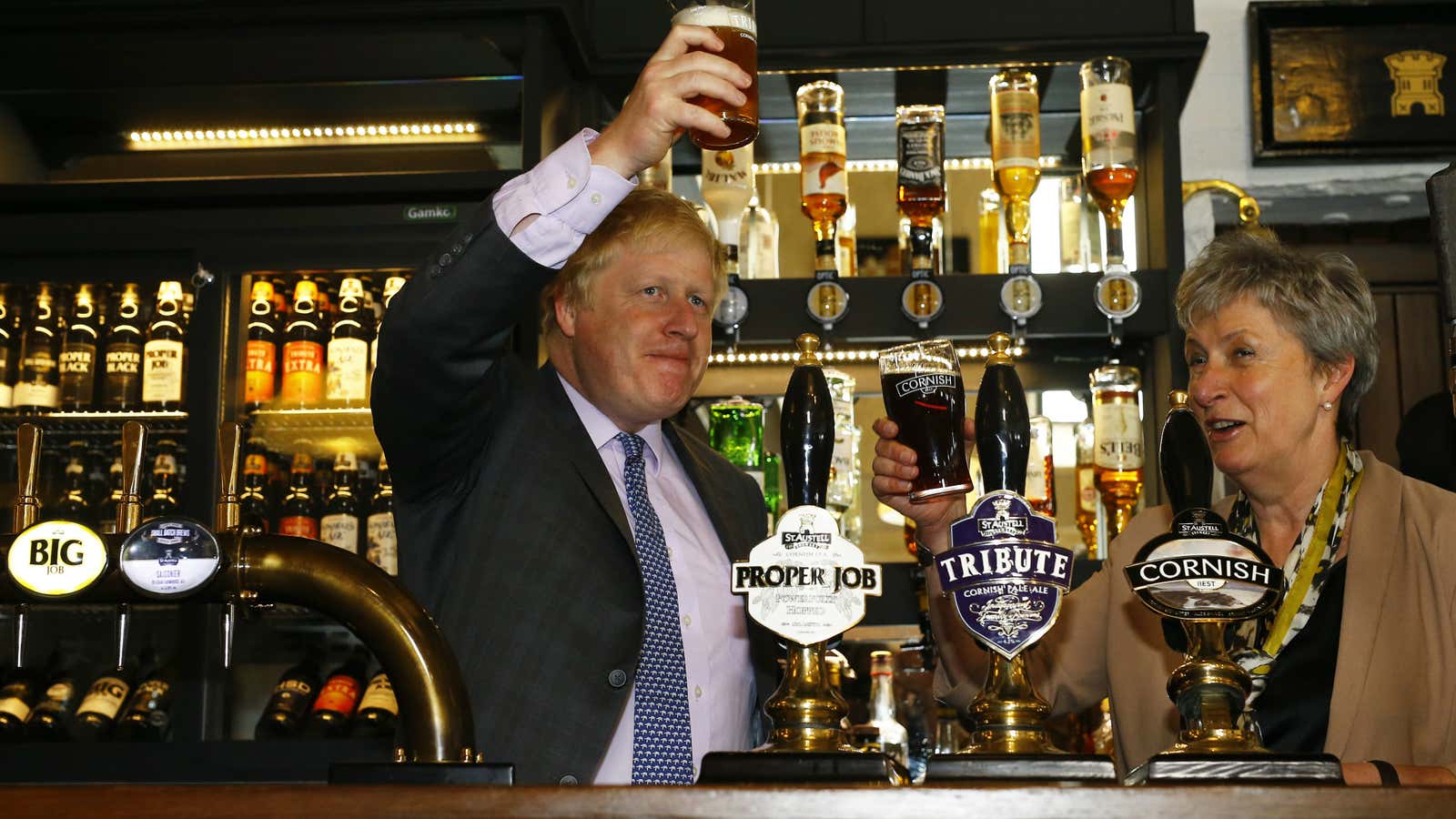Boris Johnson, London’s colorful, conservative ex-mayor, has become the public face of the campaign for the UK to leave the European Union. He’s outspoken and politically ambitious—perhaps the next prime minister, if a British exit (so-called Brexit) upends the current government after citizens vote in a referendum on June 23. Johnson is, after all, a member of the same political party as the sitting prime minister, David Cameron, who is is leading the campaign to stay in the EU.

Another prominent voice in the Brexit campaign—the chair of the official “Vote Leave” group, in fact—is Gisela Stuart, a German-born member of parliament. She’s a member of the center-left Labor party, whose leader and rank-and-file members want to stay in the EU. Her background is also somewhat incongruous, given that a primary aim of the pro-Brexit campaign is to reduce immigration from the EU.
“Isn’t this a bit like you are trying to kick away the ladder?” asked one British commentator.
Stuart has three responses to this rather obvious question: One, she arrived in the UK in the 1970s with a job, which is not the case for many immigrants today. Two, she worked on a new constitution for the EU a decade-and-a-half ago, which cured her of the belief that the EU was a well-functioning entity. And, three, the world has changed.
From Bavaria to Brexit
Stuart was elected a member of parliament for Birmingham Edgbaston, in the north of England, in 1997. She held a few senior roles in the government of Tony Blair, who favored greater integration with the rest of Europe. As a UK representative to the European Convention, she was slated with drawing up a new constitution for the EU. In other words, she was a point person forging closer ties with Europe.
Then, she changed her mind. Completely.
“I genuinely believed that there was a moment where this project was prepared to respond to the needs of the people, in [20]01, ’02, ’03,”she told Channel 4. “Then I realized, ‘it’s not changing.'”
She believes that immigration is out of control and needs to be curbed. Net migration to the UK rose to 333,000 in 2015, the second-highest figure on record. Prime minister Cameron promised to cut it to the tens of thousands when he was running for election back in 2010, which has dogged him ever since. The Brexit campaign has seized on this perceived inability of Britain to reduce the influx, stressing that quitting the EU would free it from the bloc’s rule that guarantees citizens the right to live and work in any other member state.
On this, Stuart finds herself in strange company: aligned with the rightwing of the country’s right-of-center party, and others even further away on the political spectrum, like the vehemently anti-immigration UK Independence Party. ”It is a view which is so heretical… you’re seen as a lunatic,” she told the BBC.
She is also a rare female voice in what has been a predominantly male-dominated debate.
But going against the grain seems part of her DNA. She was a rare member of parliament to publicly support the re-election of George W. Bush in the US, arguing that “you know where you stand with George and, in today’s world, that’s much better than rudderless leaders who drift with the prevailing wind.”
